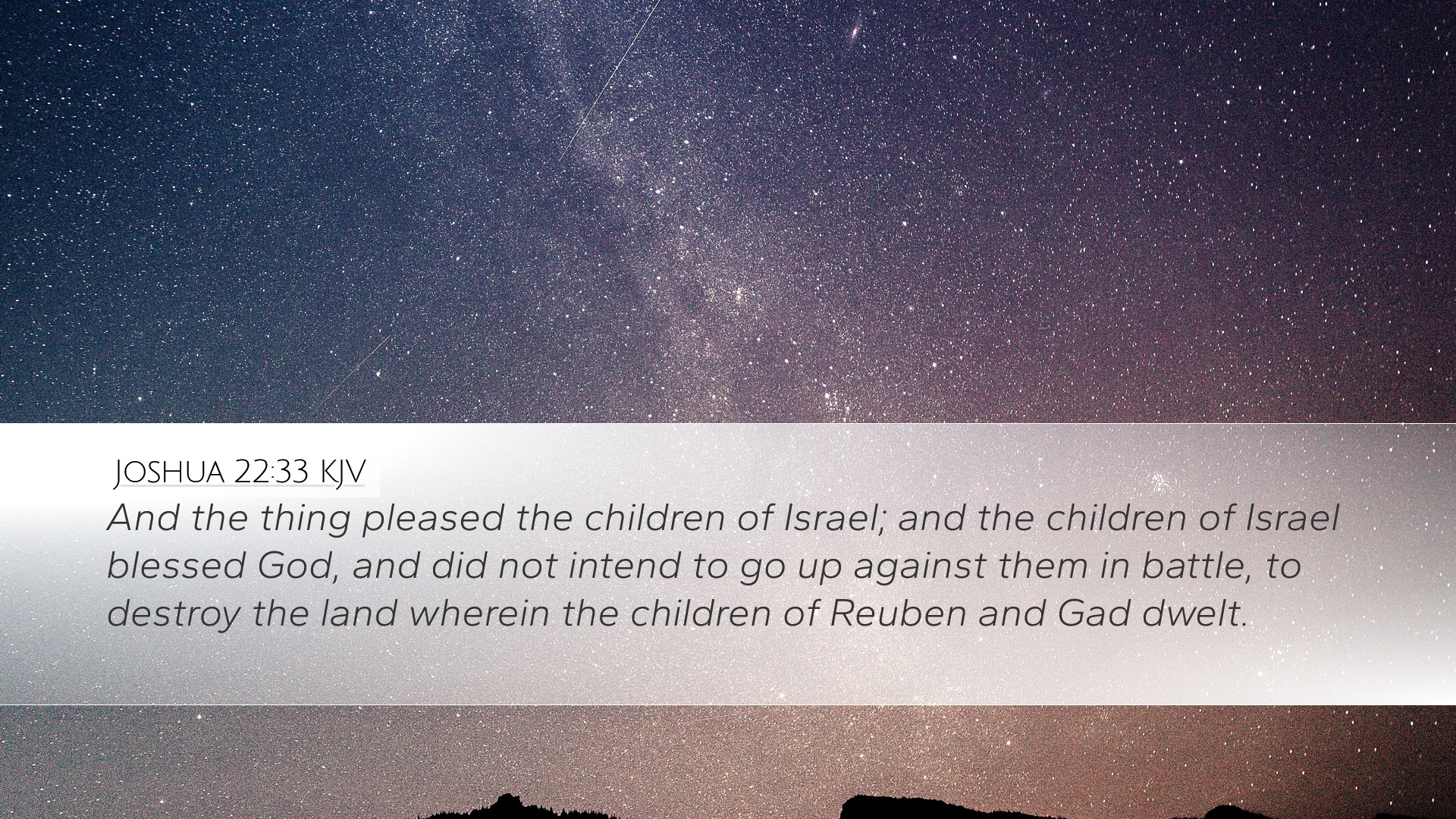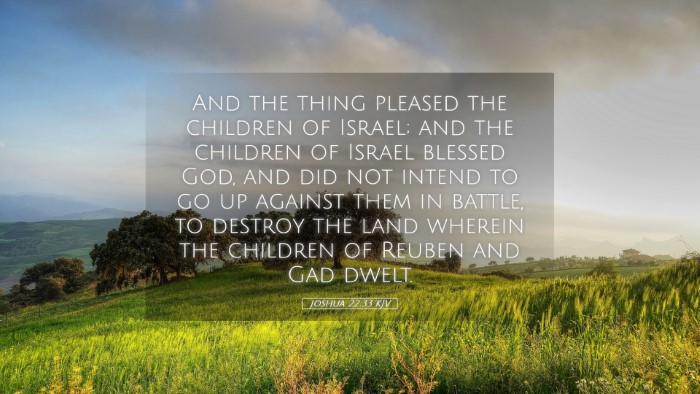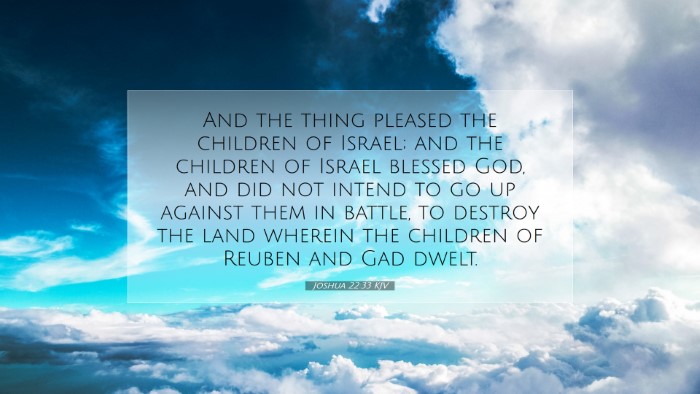Commentary on Joshua 22:33
In Joshua 22:33, we find the resolution of a significant conflict between the eastern tribes of Israel and the remaining tribes, following the establishment of territorial boundaries. The verse reads:
"And the report of it pleased the children of Israel: and the children of Israel blessed God, and did not intend to go up against them in battle."
Contextual Background
The events leading to this verse are profound in understanding Israel’s national unity and divine calling. The eastern tribes—Reuben, Gad, and the half-tribe of Manasseh—after the conquest of Canaan, were granted lands east of the Jordan River. This settlement raised concerns among the other tribes as they feared a potential division and loss of shared worship practices centered in Shiloh.
Matthew Henry's Insights
Matthew Henry emphasizes the importance of communication and reassurance among brethren in faith. He notes that the eastern tribes erected an altar that could be perceived as an act of rebellion or an affront to God’s covenantal worship centered at the tabernacle.
- Significance of the Altar: Henry elaborates that this altar was not meant for sacrifices, but as a witness, a memorial to the unity of Israel. The defense from the eastern tribes clarified their intentions and reaffirmed their commitment to the worship of Yahweh.
- Unity and Peace: He highlights how the children of Israel responded with joy and gratitude. This response signifies the restoration of peace and the collective recognition of God's oversight in their affairs.
Albert Barnes’ Commentary
Albert Barnes focuses on the theological implications of the actions of the eastern tribes. He highlights the role of the altar as a physical symbol of faith and unity among the Israelites.
- Symbol of Agreement: Barnes points out that the altar served to prevent misconceptions about the intentions of the Reubenites, Gadites, and Manassites. By acting decisively to inform the other tribes of their true intentions, these tribes demonstrated their loyalty to God.
- Divine Approval: He further posits that the pleased reaction of the Israelites reflects divine approval of communal worship and the action of acknowledging God’s sovereignty through actions and intentions.
Adam Clarke's Analysis
Adam Clarke elaborates on the cultural and relational dynamics at play. He highlights the necessity of understanding one's neighbors and maintaining bonds grounded in faith and truth.
- Prudence and Diplomacy: Clarke underscores the prudential approach taken by the eastern tribes in addressing the concerns of the western tribes. The articulate explanation helps avoid conflict, thus serving as a model for future reconciliations.
- Implications of Conflict Avoidance: The resolution leads to a sense of unity among the Israelite community, a crucial factor in their collective identity as they journey through the land.
The Importance of Communication
This passage serves as a reminder of the critical importance of communication within the community of faith. The eastern tribes could have remained silent and caused misunderstanding, leading to potential violence. Instead, they chose to communicate openly and truthfully.
The Role of Worship in Unity
The construction of the altar as a 'testimony' signifies the central role of worship in maintaining unity. It goes beyond mere physical structures and points to the deeper spiritual reality that all are called to bear witness to the greatness of God.
Conclusion
Joshua 22:33 stands as a crucial lesson for modern-day communities of faith. The themes captured in this verse encourage a commitment to unity, open communication, and a central understanding of worship that transcends geographical and cultural boundaries. The concerns and fears of one group were addressed in a spirit of love and mutual respect, illustrating the beauty of what it means to be a part of the body of Christ.
In summary, both the historical and spiritual implications found in this verse enrich our understanding and appreciation of communal faith experiences, guiding us to act in ways that reflect divine principles that foster harmony and love within the body of believers.


